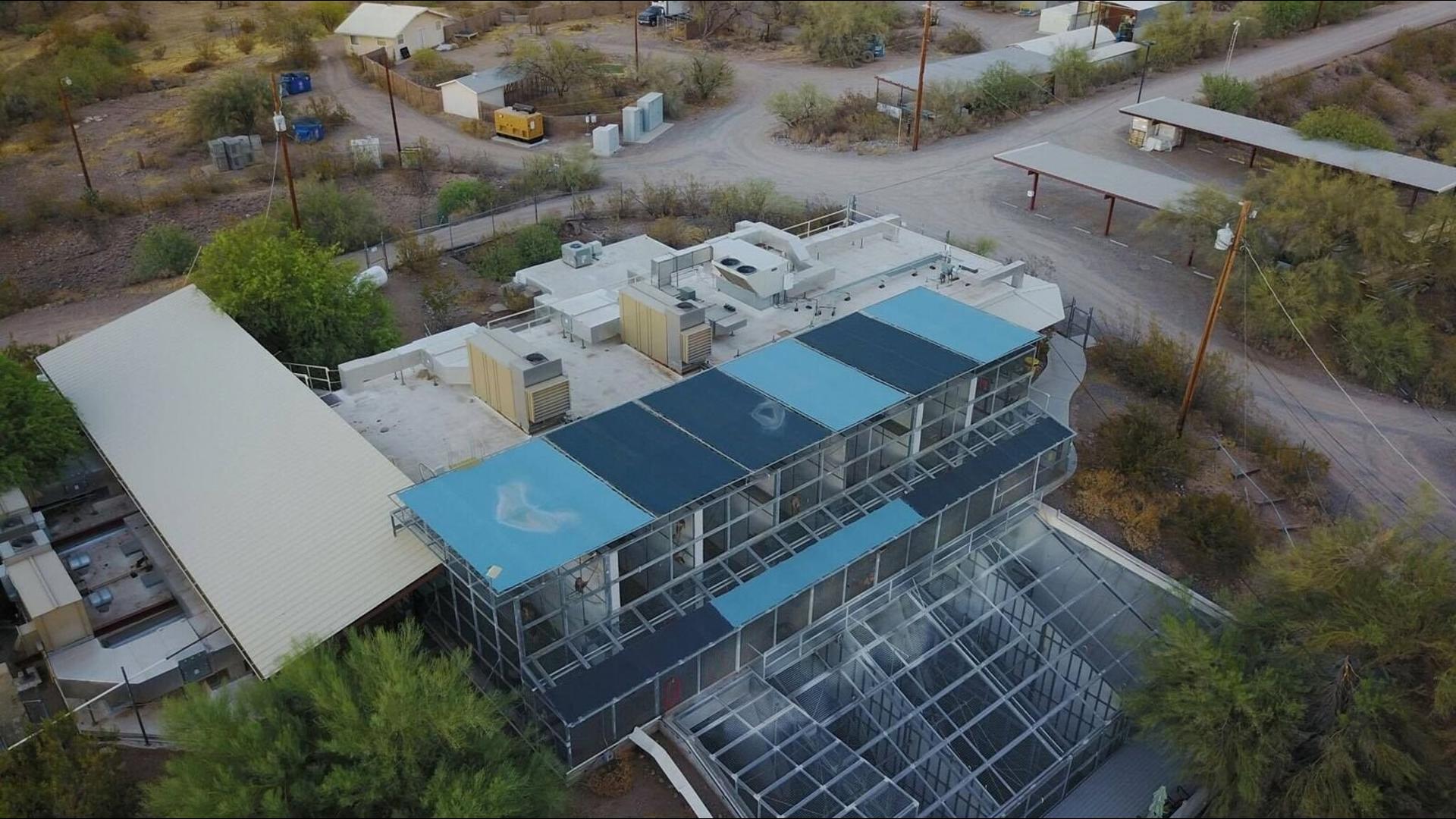MESA, Ariz. — People for the Ethical Treatment of Animals has sent a complaint to the U.S. Department of Agriculture alleging multiple violations at a Mesa primate research facility run by the University of Washington.
The complaint accuses the university of failing to protect its employees from injuries at both the Mesa facility and its sister location in Seattle.
The Mesa primate research facility is located in the desert north of the Loop 202 near Higley Road and has housed monkeys for more than a decade. It became well known when a drone pilot flew over it, taking video of monkeys in cages at the remote facility.
The University of Washington uses the facilities to raise monkeys for testing purposes.
"It's outrageous," said Dr. Lisa Jones-Engel, PETA's primate scientist, "compared to what I think you would see in virtually any other facility."
PETA, which has long opposed animal testing, went through years of the university's safety committee minutes, which describe injuries that are reported across the university's properties. PETA claims those injuries fall under the purview of the USDA's oversight ability for those primate facilities.
At the Arizona facility, most of the injuries are slip and fall injuries, strained muscles, bumps and bruises.
But others are related to the monkeys.
One incident describes a worker being bitten on the calf and knee by a "displeased monkey."
Another injury was described as a fall that resulted in a scratched arm; the incident was treated as a "B virus exposure." Some of the monkeys held at the facility can carry the herpes B virus, which can be deadly in humans.
Another incident describes a worker hitting their hand and puncturing their protective gloves. That incident was also treated as a herpes B exposure.
Jones-Engel said the list of incidents at both locations causes concern about the entire program.
"If you can't keep your monkeys healthy, if you can't keep your staff safe," she said, "you're not taking good care of taxpayer funding, you're not doing good science."
The University of Washington disputed PETA's allegations in a lengthy statement from university spokesperson Victor Balta:
"We understand the critical importance of maintaining a safe environment for personnel working with non-human primates. As summarized in the letter to the USDA, we have established a robust safety culture where personnel are encouraged to report any potential exposures or hazards. The incidents mentioned were properly documented and addressed by the University of Washington Group 1 Safety Committee. Notably, these are human safety reports and incidents, and would not be regulated under the Animal Welfare Act regulations or reported to the USDA.
Given the nature of this work, additional precautions, oversight, and training are necessary, which naturally leads to a higher incidence of safety reports. Due to the significant risks associated with potential exposures, we mandate that all possible exposures are reported and thoroughly investigated. We are committed to continually reviewing our training programs and procedures to identify and address any gaps or areas for improvement.
Due to the inherent risk associated with potential exposures, we mandate that all possible exposures are properly reported and thoroughly investigated. We understand that additional precautions, oversight, and training are paramount to maintaining a safe environment. Our established protocols for documenting and analyzing safety reports is a proactive approach to identifying potential hazards and implementing corrective actions to prevent incidents from occurring in the future, naturally leading to a higher incidence of safety reports."
UP TO SPEED

